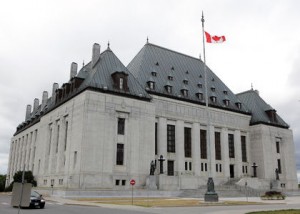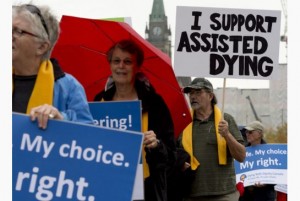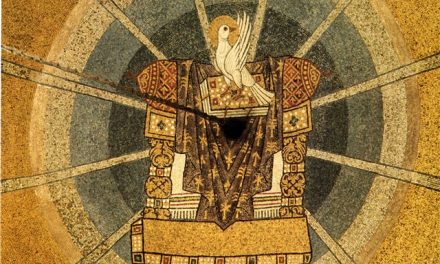It is telling that the Supreme Court of Canada avoided the language of assisted-suicide or euthanasia, and instead chose the euphemism ‘physician-assisted dying.’ But dying is not killing. All of us will die. God willing, none of us will be killed. I would suggest that one is wise to be suspicious when very smart people start to refer to ‘killing’ as ‘dying’.
In light of the coming practice of euthanasia in Canada and since most Catholics only get reporting on the issue from the mainstream news media, my priest at my parish asked me to speak to the issue at each of the masses this past weekend (April 2-3, 2016).
Dying Faithfully
When I teach a course on bioethics or end of life issues, I often begin one of the classes by asking the students a question: “How Do you Want to Die?”  My students almost always say that they wish to die without knowing it, in their sleep or when they are unaware. If they cannot die in that way, then they want to die quickly and painlessly, ideally when they very old and are least expecting it. My students – and most of us I suspect – here reflect our culture. We do not want to think about death … In a way, it seems obvious, doesn’t it?
My students almost always say that they wish to die without knowing it, in their sleep or when they are unaware. If they cannot die in that way, then they want to die quickly and painlessly, ideally when they very old and are least expecting it. My students – and most of us I suspect – here reflect our culture. We do not want to think about death … In a way, it seems obvious, doesn’t it?
But in fact, this is the opposite of how Christians have thought about their dying for most of the last two thousand years. A sudden death was a terrible tragedy. Our Catholic tradition has always believed in the idea a good death, as one which requires proper preparation. It involves putting one’s affairs in order, being reconciled with loved ones (especially those from whom one is estranged), and ultimately, being reconciled with God. We know this is not easy, and thus know that the dying need – through God’s grace – particular virtues (such as patience and courage), in order that they might die well.
In the final years of his life, Pope John Paul II wrote beautifully about coming to terms with one’s dying: “In old age, how should one act in the face of death? The believer knows that his life is in the hands of God: “You, O Lord, hold my lot”, and he accepts from God the need to die.”
John Paul then continues: “In moments of sickness too, we are called to have the same trust in the Lord … Illness does not drive us to despair and to seek death, but makes us cry out in hope: “I kept the faith, even when I said, ‘I am greatly afflicted.’” (EV #46)
“I kept the faith” is an apt way to summarize Christian (and Jewish and Islamic) teaching on dying and freely-chosen suicide. These traditions all consider suicide to be gravely sinful, as it is a failure to ‘keep faith.’ At the heart of this teaching is the view that our lives are not our own, but that we are servants of God.
We may put the prohibition in a different way: Since euthanizing an innocent person is murder, so the free choice to kill oneself is self-murder. This in fact was the dominant term used in Christian tradition prior to the invention of the term ‘suicide’ in the 18th Century.
The Supreme Court Decision
As we all know, last year the Canadian Supreme Court came to the decision that ‘physician assisted dying’ is to be allowed in Canada. It is telling that the Supreme Court avoided the language of assisted-suicide or euthanasia, and instead chose the euphemism ‘physician-assisted dying.’ But dying is not killing. All of us will die. God willing, none of us will be killed. I would suggest that one is wise to be suspicious when very smart people start to refer to ‘killing’ as ‘dying’. If we are to think faithfully about what the Supreme Court has decided, we need to be truthful regarding the topic. It is about us as Canadian society consenting to kill individuals if they request it (that is, to euthanasize them).
What has the Supreme Court Decided?
 While the Supreme Court focused its decision on euthanasia in reference to a highly unusual case of extreme and unremitting suffering, there is nothing in their decision that limits euthanasia to such cases. It is up to legislatures to either limit it to such rare cases, or to potentially give us euthanasia on demand. A variety of “expert panels” are making suggestions on how much euthanasia we should get, but they are just that, suggestions.
While the Supreme Court focused its decision on euthanasia in reference to a highly unusual case of extreme and unremitting suffering, there is nothing in their decision that limits euthanasia to such cases. It is up to legislatures to either limit it to such rare cases, or to potentially give us euthanasia on demand. A variety of “expert panels” are making suggestions on how much euthanasia we should get, but they are just that, suggestions.
Moral Reflections on the Supreme Court Decision
Advocates of euthanasia in Canada (which seems to include almost all of the mainstream media) tell us one very specific narrative about why we need this law. This story is that this law is needed to give relief from unbearable suffering to terminally ill people who can then freely choose to be killed. But there are other important narratives which we need to know and tell.
One important narrative we get from Stats Canada. Over 90% of those who commit suicide are mentally ill. And for every successful suicide there are 20 attempts. This alone should make us wonder? Will the vast majority of euthanasia requests not qualify? If so, will they all be rejected?
Many cases of mental illness are not easily diagnosed. How else could we explain why men over 85 commit suicide at 18 times the rate of women over 85. Is Canadian society really capable of distinguishing those who are freely choosing versus those who are mentally ill? And does Canadian society care enough to prevent euthanasia on the mentally ill? Mental illness is not restricted to a tiny percentage of the population. Many of you sitting here either have in the past, or will one day in the future, be diagnosed with a mental illness. And there is a significant chance one of your teen-age children will be diagnosed with a mental illness.
Even among the small percentage of the terminally ill who request euthanasia, the desire to be euthanized is highly unstable. Harvey Chochinov, the leading Canadian researcher on end of life care has empirically demonstrated that among the terminally ill, the desire to be killed is typically fleeting, varying from day to day. Furthermore, if the terminally ill who request euthanasia have their particular fears and symptoms addressed, their desire to be killed greatly declines.
When the covers are stripped back, there is one fundamental argument for euthanasia. It is the appeal to something called ‘autonomy.’ Autonomy is the philosophical view that freedom consists in my getting to control all aspects of my life, and that I am only responsible to myself. This is a powerful and entrancing moral vision, one that tempts almost all of us. But even if we buy into this peculiar moral vision called ‘autonomy,’ the appeal to it to justify euthanasia is at best ironic, and for two reasons.  First, it is rather odd to appeal to autonomy, and then claim that someone else should have to kill you. Second, the empirical research from other countries that allow euthanasia shows that the view that freedom consists in autonomy typically leads to the opposite of freedom, that is, that more mentally ill or incompetent people wind up getting euthanized than those who clearly and decisively request it. For this any many other reasons, the view that true freedom consists in autonomy is a moral fantasy that turns out to be self-defeating.
First, it is rather odd to appeal to autonomy, and then claim that someone else should have to kill you. Second, the empirical research from other countries that allow euthanasia shows that the view that freedom consists in autonomy typically leads to the opposite of freedom, that is, that more mentally ill or incompetent people wind up getting euthanized than those who clearly and decisively request it. For this any many other reasons, the view that true freedom consists in autonomy is a moral fantasy that turns out to be self-defeating.
This second argument, that allowing euthanasia typically produces results opposed to true freedom, is analogous in terms of the reasoning many jurisdictions invoke when they halt or abolish capital punishment. Even if they are in principle for it, they abolish it because too many innocent people wind up getting executed. Over the long term, we can expect an analogous scenario in Canada with regard to euthanasia. Sadly, Canada is unlikely to abolish euthanasia, even then.
Do Catholics Have Only a ‘Religious’ Response?
In the midst of a debate about euthanasia (or for that matter a variety of other social issues), the worst thing to hear is “the only objection to it is religious.” Which is another way of saying that the objections come from religious people sticking their noses in other people’s business. Or that ‘religious’ beliefs are inherently private and do not belong in a public debate a particular moral and legal issue.
But this is obviously false. Objecting to innocent people being killed is not a “religious” belief. In objecting to euthanasia, Christians are not trying to impose e.g. their view of the Holy Trinity on society, nor are they requiring everyone to fast on Fridays in Lent.
Rather, in rejecting the legalization of euthanasia, Catholics are affirming a truth about human beings that everyone can or should surely recognize. That is, that a society that chooses to kill innocent human persons is what John Paul calls a “totalitarian democracy,” where the appeal to democracy functions as a moral cover for denying human dignity to some persons. Every good society upholds laws to protect its people from being victimized by fraud, assault, robbery, etc. If there is one principle that must be central to a good or even tolerable society, it is that we may never kill an innocent person.
For like it or not, as Cathleen Kaveny articulates so well, the law in our society is a moral teacher. It affects how we think and how we act. To take a trivial example, Toronto says we need to pay a nickel for a plastic bag, and now we all carry our reusable bags to the grocery store. Laws change societal practices. Canada’s new view that we can kill innocent people – even if it is highly restricted – will change our society. It will change the way each of us think about our own lives and the lives of others, more than we might imagine.
Euthanasia – Are Some Lives Not Worth Living?
‘Autonomy’ is never pure. Having agreed to euthanize persons, Canadian society implicitly accepts that some lives are not worth living, that some people are better off dead.
Over the centuries, modern societies have fought wars to overcome racist ideologies against e.g. Jews and Blacks. In Canada we’ve only recently figured out (as late as 1972 in Alberta) that it was wrong to appeal to eugenics to sterilize people. And yet now Canada is abandoning the fundamental principle that every human life has dignity and should be protected.
There always has been and always will be an undercurrent in society that thinks some individuals’ lives are worthless. When this undercurrent has taken power, it always produces very ugly results. As Canadian society agrees that it is a good thing to euthanize some of our citizens, we should expect similar ugly results.
How Does Our Faith Guide Us on Euthanasia?
But what about the Supreme Court of Canada’s appeal to “excruciating suffering” to justify euthanasia? Thankfully, we live in a culture that can eliminate excruciating pain as a feature of dying. In that respect Canadians are better off than 99% of the people who have ever lived on this planet.
While palliative case does well with physical pain, many people at the end of life continue to suffer tremendously, in particular by a sense of meaninglessness. That suffering can and is addressed by palliative care, and by those of us who show solidarity with them. Are we as Catholics willing to be with and suffer with our loved ones in their dying? Are we willing accompany our brothers and sisters as they prepare for death, being reconciled to others and to God?
In the gospel reading this morning, we find the apostles locking the doors, fearful of what societal leaders may do to them. Jesus came among them and repeatedly said to them “peace be with you,” and gave them the gift of the Holy Spirit. In our reading from Revelation, the Son of Man comes and says “Do Not Be Afraid.” As we witness to the dignity of every human life in our society, may we, relying on the peace given to us by Christ, and the power of the Holy Spirit, be faithful witnesses to a grace-filled life, one that does not demand control either over our own dying, nor that of our brothers and sisters.



Thanks for this post, John – I happen to be reading it just as I’m in the thick of reading Jeffrey Bishop’s book The Anticipatory Corpse with my health care ethics courses this semester. I have been haunted all semester by the question you’re raising here about choices – and the ways in which, perhaps, all of our lovely medical technological progresses are forcing us to consider only certain choices in the name of autonomy. it would seem that if we want an otherwise, we do indeed need to be a community capable of witnessing to the resurrection in the way you suggest in your last paragraph.